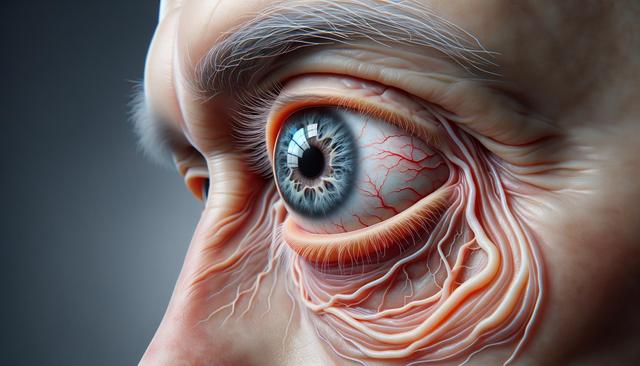Understanding Macular Degeneration
Macular degeneration, particularly age-related macular degeneration (AMD), affects the central part of the retina known as the macula. This condition is most common in individuals over the age of 50 and can lead to significant visual impairment. There are two primary types of AMD: dry and wet. The dry form is more prevalent and progresses slowly, while the wet form is less common but tends to cause rapid vision loss due to abnormal blood vessel growth. Knowing the difference between these types helps guide treatment decisions and expectations.
The standard of care for age related macular degeneration often begins with lifestyle adjustments and monitoring. Factors like smoking, poor diet, and excessive sunlight exposure can accelerate the condition. Regular eye exams are essential for early detection and management. While dry AMD currently has no cure, patients can benefit from nutritional supplements and lifestyle changes aimed at slowing its progression. On the other hand, wet AMD requires more immediate and targeted treatments to prevent rapid deterioration of vision.
Anti-VEGF Injections: A Key Treatment for Wet AMD
One of the most widely used and effective treatments for wet macular degeneration is anti-VEGF (vascular endothelial growth factor) injections. These medications work by blocking the protein responsible for the growth of abnormal blood vessels under the retina. By doing so, they help stabilize and even improve vision in some patients. Typically administered every 4 to 8 weeks, these injections have become the cornerstone of wet AMD care.
In terms of the standard of care for age related macular degeneration, anti-VEGF therapy represents a major advancement. For those seeking the latest treatment for wet macular degeneration in your city, consulting a retinal specialist is the best first step. These specialists can tailor treatment plans based on the severity and response to initial therapies. Many patients report noticeable improvement or stabilization of vision with continued adherence to this regimen.
Emerging Therapies and Innovations
As research progresses, new treatments for macular degeneration are continually being evaluated. Some of these include sustained-release drug delivery systems, gene therapies, and novel oral medications. These innovations aim to reduce the frequency of injections and enhance the efficacy of treatment. For example, extended-release implants have shown promise in clinical trials, potentially offering longer intervals between treatments.
Staying informed about new treatments for macular degeneration in your city can help patients make timely and effective healthcare decisions. Additionally, some investigational therapies are available through clinical trials, providing access to cutting-edge solutions under medical supervision. The expansion of treatment options offers renewed hope for individuals looking for the top ways to improve macular degeneration in your city. These therapies may not be widely available yet, but they represent a growing arsenal in the fight against vision loss.
Lifestyle and Nutritional Strategies
Although medical treatments are essential, lifestyle and nutrition play a critical role in managing macular degeneration. Several studies suggest that a diet rich in antioxidants, leafy greens, omega-3 fatty acids, and zinc can support retinal health and slow the progression of dry AMD. Nutritional supplements such as those recommended in the AREDS2 (Age-Related Eye Disease Study 2) formula are often advised by eye care professionals for this purpose.
Here are some key lifestyle strategies:
- Avoid smoking, as it significantly increases AMD risk
- Wear sunglasses that block UV and blue light
- Maintain a healthy weight and exercise regularly
- Monitor vision changes with an Amsler grid
Adopting these habits can complement medical treatments and enhance overall eye health. For those exploring top ways to improve macular degeneration in your city, community health programs and vision care clinics may offer tailored support and resources.
Customized Care Plans and Regular Monitoring
Effective treatment of macular degeneration requires a personalized approach. Eye care professionals often develop customized care plans that incorporate medical treatments, lifestyle changes, and regular monitoring. This holistic strategy ensures that any changes in the condition are detected early and addressed promptly. Regular imaging tests, such as optical coherence tomography (OCT), help track disease progression and treatment effectiveness.
Patients looking into new treatments for macular degeneration in your city should engage with specialists who stay current with the latest research and tools. Personalized care may also involve coordination with nutritionists, primary care physicians, and low vision rehabilitation services. These collaborative efforts aim to maintain independence and quality of life for those affected by AMD. As technology and understanding of the disease evolve, these integrated approaches will continue to shape the future of AMD management.
Conclusion: Empowering Patients with Knowledge and Support
Macular degeneration can impact daily life, but with the right combination of medical treatments, lifestyle choices, and professional guidance, many individuals maintain functional vision for years. Understanding the standard of care for age related macular degeneration and staying informed about the latest treatment for wet macular degeneration in your city empowers patients to take control of their eye health. From anti-VEGF injections to emerging therapies and holistic care plans, there are multiple avenues to explore. For those seeking new treatments for macular degeneration in your city, consulting with a knowledgeable eye care provider is the first step toward protecting and preserving vision.
